Moderator online short training course
Focused training program offered online that teaches individuals how to effectively perform the role of a moderator. Here’s a breakdown of what each part means
Why Take a Moderator Online Short Course?
Learn Effective Communication Skills: Understand how to mediate discussions, provide helpful feedback, and guide users towards productive conversations.
Enforce Community Guidelines: Gain the ability to enforce rules, handle inappropriate content, and create a safe space for users.
Manage Conflict: Learn how to deal with online disputes and manage hostile or disruptive users in a calm and effective manner.
Understand Legal and Ethical Issues: Develop an awareness of privacy laws, ethical considerations, and best practices when managing user-generated content.
Enhance Digital Literacy: Build a deeper understanding of digital tools, social media platforms, and the technical aspects involved in moderating online spaces.
Benefits of Completing moderator online Course:
Career Opportunities: With a growing demand for online moderators in various industries, such as gaming, social media, e-commerce, and tech, completing this course can open up career paths in these fields.
Skill Enhancement: Even experienced professionals can benefit from learning the latest moderation techniques and tools.
Networking: Some courses offer forums or community access where students can connect with peers, instructors, and industry professionals.
Overview
Welcome to the educational moderator course, a comprehensive program designed to equip you with the knowledge and skills necessary to excel in the dynamic and rapidly evolving field of educational moderation. In an era where online and blended learning platforms are becoming increasingly prevalent, the role of an educational moderator is more critical than ever. This course has been crafted to empower you with the essential tools and insights required to facilitate effective learning, foster engaging discussions, and ensure a safe and inclusive online learning environment.
Description
Welcome to the educational moderator course, a comprehensive programme designed to equip you with the knowledge and skills needed to excel in the dynamic and rapidly evolving field of educational moderation. As online and blended learning platforms become increasingly prevalent, the role of an educational moderator is more critical than ever. This course has been crafted to provide you with the essential tools and insights required to facilitate effective learning, encourage engaging discussions, and ensure a safe and inclusive online learning environment.
- Embedded knowledge, glossary and definitions
- Overview and structure of the NQF
- South African Qualifications Authority (SAQA)
- NSB’s and SGB’s
- Education and Training Quality Assurance bodies (ETQA’s)
- Skills development structures
- Moderation as it contributes to quality assured assessment and recognition systems
- Moderation methods in terms of strengths, weaknesses and applications
- Overview of moderation systems in assessments
- Key principles of assessment, their importance and effect on assessment
- Moderation activities that verify the fairness and appropriateness of assessment
- Understanding assessment: introduction to gathering evidence
- Assessment situations for gathering evidence of abilities
- Different methods to use when gathering evidence part 1
- Different methods to use when gathering evidence part 2
- Planning and preparation: roles, responsibilities and design considerations
- Planning and preparation: management, functions and best practices
- Planning and preparation: methods, purpose and processes
- Planning and preparation of moderation: the moderation plan
- The scope of the moderation is confirmed with relevant parties
- Ensure sufficient moderation evidence to enable a reliable judgement
- Clarify the contexts of the assessment under review, taking into account special needs
- Prepare documentation in line with the moderation system
- Make physical and human resources available and ready to use
- Conduct a moderation in accordance with the plan
- Judge assessments in terms of the principles
- Ensuring the special needs of the learners are catered for
- The proportion of assessments checked is in accordance with the quality assurance bodies requirements
- Giving advice and guidance to assessors
- How to contribute to the development of assessors
- To whom will you report your moderation findings to and what is the agreed timeline? Part 1
- To whom will you report your moderation findings to and what is the agreed timeline? Part 2
- How to maintain records in accordance with the quality management system
- How to preserve confidentiality of information
- Prepare a SWOT analysis of moderation systems and processes
- Make recommendations that contribute towards the improvements of moderation systems and processes in line with ETQA requirements
- Review the credibility of recognition systems
- Non-accredited: Short course only
- Duration: 04h 30m
- Delivery: Classroom/Online/Blended
- Access Period: 12 Months

